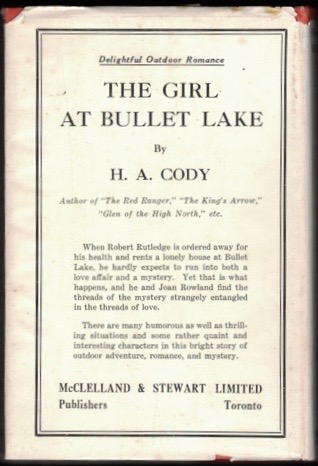I finished reading my last book of the year yesterday afternoon; there is no way the I'll reach the end of the next before January. And so, the time has come for the annual recap of the best dusty books reviewed here and in
Canadian Notes & Queries.
Twenty-seventeen was an unusual year for the Dusty Bookcase. Roughly twice as many books were covered in the first half as in the second. Promotion of the Dusty Bookcase book,
The Dusty Bookcase: A Journey Through Canada's Forgotten, Neglected and Suppressed Writing, had something to do with it, but so too did other projects. The sad result is that just nineteen books were reviewed in 2017... and here I include that for the book I finished yesterday, which has yet to be written and posted. Either way, it is an all-time low.
Happily, despite the relatively small number –
nineteen! – it was very easy to come up with this year's list of three books deserving a return to print:
Revenge!
Robert Barr
Barr stands with May Agnes Fleming and Grant Allen as one of our three most interesting Victorian novelists, and yet we ignore them all. This 1896 collection of twenty short stories delves into the darkest, deadliest areas of the soul.
Behind the Beyond
Stephen Leacock
First published in 1913, this is one of titles dropped in the New Canadian Library's bloody post-Ross purge. It stands amongst Professor Leacock's best collections. Interested publishers should consider
the sixteen A.H. Fish illustrations featured in the first edition.
In Quest of Splendour
[Pierre le magnifique]
Roger Lemelin
[trans. Harry Lorin Binsse]
Lemelin's third novel, and very nearly his last, this pales beside the sales of the other three, but I think it is his best. Harry Binsse's 1955 translation enjoyed a single printing. Time has come for a new edition.
Three works reviewed this year are in print:
First published in 1902, the oldest is Ralph Connor's somewhat nostalgic, somewhat autobiographical novel
Glengarry School Days. Last I looked, the 2009 New Canadian Library edition with introduction by John Lennox was still available from Penguin Random House. For how much longer, I wonder.
Shadow on the Hearth (1950) by Judith Merril is far from the best novel I read this year, but is recommended just the same. A Cold War nightmare, it has as much to do with the H-bomb as state secrecy and control. It features as one of three novels collected in
Spaced Out: Three Novels of Tomorrow, published by the New England Science Fiction Society
Press.
Wives and Lovers (1954) is generally considered the last Margaret Millar non-Mystery... which isn't to say that there isn't mystery or that its characters don't do some very bad things. The very best novel I read this year, it can be found in
The Master at Her Zenith, the third volume in Syndicate Books'
Collected Millar.
I was involved in resurrecting only one book this year:
The Pyx
John Buell
The twelfth title in the Ricochet Books series, I consider this the best. A debut novel, first published in 1959 by Farrar, Straus & Cudahy, it has drawn considerable praise through the decades. This new edition has an introduction by Sean Kelly.
Praise this year goes to Biblioasis' ReSet series. Now, I do recognize the optics – Biblioasis being the publisher of
The Dusty Bookcase – but, really, is it not overdue? For six years now, roughly half the life of the press, it has been bringing back some of our most unjustly neglected titles. Early in the New Year,
I Don't Want to Know Anyone Too Well, the collected stories of Norman Levine, will be added to the series.
Speaking of the New Year, I don't think it's too early for resolutions. Here are mine:
- I resolve to read more books by women (two-thirds of my 2017 reading were books by men);
- I resolve to read more books by French language writers (In Quest of Splendour was the only one read in 2017);
- I resolve to read and review more forgotten, neglected and suppressed books than I did this past year;
- I resolve to continue kicking against the pricks.
You?
Related posts:























































